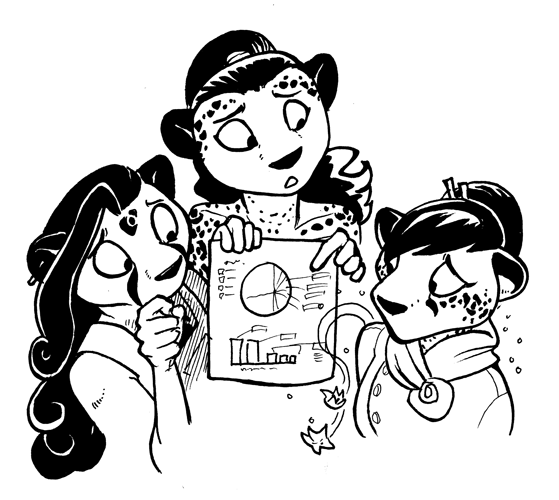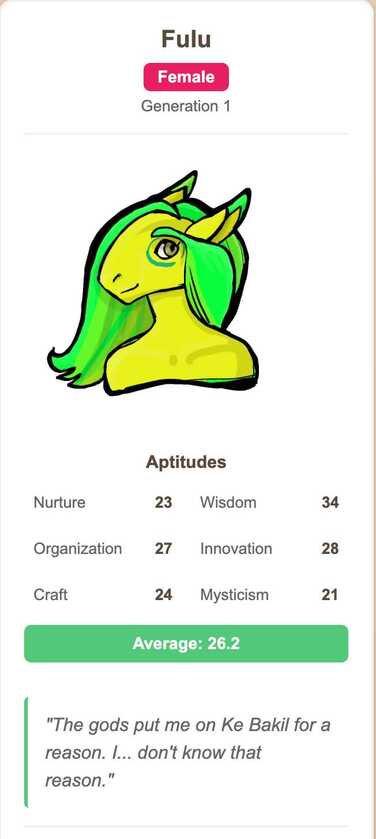(Just discovered this new 'article' function on Locals, so am testing it out! --M)
When I asked about topics that interested you all, business-wise, one of them that came up was “you mentioned that art-making/making a living is different if you have dependents… can you talk about that?”
Which is a great question, but not a small one. To even start on it we have to deconstruct the concept of ‘making a living’ or being a ‘full-time artist’, which is a far more fraught distinction than I thought when I was a kid, thinking ‘When I grow up I want to be an artist/writer!’
First of all, the ‘making a living’ part. Do we even know what that means? When we ask that question, what do we know about the artist that’s being targeted by it? Where do they live? Is it a high or low cost-of-living area? What’s the area like? Good public transportation? Can they do without a vehicle? Do they have roommates? Are those partners a drain on their resources or a source of aid? Are they in debt or debt-free? Are they living on an inheritance, funds, or some other form of prior income? Is there a social safety net where they live? How many dependents do they have (children and elderly)? Do they have a partner? Is their partner employed? Does this artist have health issues? How about their dependents? Someone in a rural area with low-cost-of-living might be able to “make a living” on $25K a year… whereas the same amount in the hands of someone in an expensive city, with several dependents, wouldn’t put a dent in their expenses.
Metrics are as useful as their definitions, and this one doesn’t have a definition—at least, not one you can use for comparatives, which is what most people want the ‘make a living’ metric for. They want a sense for how successful the artist is when they ask that question, without thinking through the realization that a person supporting one or two elderly parents, an ailing partner, and a kid might be making several times the amount of the artist merrily living alone in a small rural town, who is “living off their art.”
So there’s that.
You can’t use the “full-time artist” thing as a metric either. If an artist has a partner with a high-paying job, they can be a full-time artist and make nothing at all… whereas, an artist can be earning a good salary on their art and still have a second job because expenses (or because they have a tremendous amount of energy, or because they enjoy their other career, etc). That's only one of the examples I can come up with, too. (What if they can't find another job despite job-hunting? What if they have a trust fund? What if they're living with their parents? Etc. Etc.)
Even the metric that a few professional organizations have attempted to use, that ‘your primary income is from art’, isn’t very helpful. If someone’s only doing art, and making $500 a year from it, and that’s the only money they’re making… well, their primary income is still from artmaking! Congrats, professional! I bet you won't find a warm welcome in those organizations, though... I’ve observed people using alllll these loopholes to make themselves sound far more successful or deserving than people would think them, if they’d known their situation. The ease by which those things can be manipulated in that way should make anyone suspicious.
All of this, I feel, is a very reductive way of looking at a person’s career. You can’t use these metrics to compare people because you don’t know their situation… and the temptation to disdain them for those situations is high. It’s very easy to look at someone and sneer “Oh, that’s fine for YOU, you have a SPOUSE to support you” when you don’t know the full story (what if that spouse has a low-paying job? What if they have health issues? Do they have kids? Do they have debt?). I think it also puts too high a value on us existing as creatures outside a social context. An artist is not less professional because their household has a dual income, even if their income separated from that whole isn’t exceptional, any more than they’re less professional because they can’t afford to make it on their own.
Humans love a hierarchy… but this is not a contest.
Your goal, as an artist, is to be successful—by your standards. Your standards might not include “I could support my family if my spouse lost his job and could never work again, and I had to support myself and all four of our parents, plus two kids, a dog, three cats and a parrot.” Or maybe they do, and you should ask yourself ‘is it necessary for me, at this time in my life, to be pushing for a goal that doesn’t apply to my actual life situation?’ What goals could you be missing in your drive to fulfill the metric that you think other people are judging you by? Could you be more relaxed? More fulfilled? More present for your loved ones? Could you enjoy your life, rather than finding it miserable or stressful? What’s more important to you, another $10,000 a year, or being able to get to bed at night at a reasonable hour and wake up rested?
What do you really need?
It’s natural to want enough money to take care of yourself; I would never suggest otherwise. But I will say: don’t let other people judge you by a measuring stick that’s either inadequate to describe your situation… or constantly changing so you don’t measure up. And don’t you use that measuring stick to beat yourself up, either. If you’re in this to (God help me) ‘make a living’, then figure out how much you need to fulfill your responsibilities based on your social context, not on some imaginary artist’s hypothetical life, and grant yourself the freedom to consider a path that doesn’t meet other people’s expectations. And remember: every person you meet is as individual as you, with their own challenges and advantages. This is, I feel, an opportunity to connect with them as people over actual life issues... what a blessing.
So, yeah. 'Making a living.' Not the simple yardstick any of us were hoping for. Don't let anyone tell you otherwise.



















